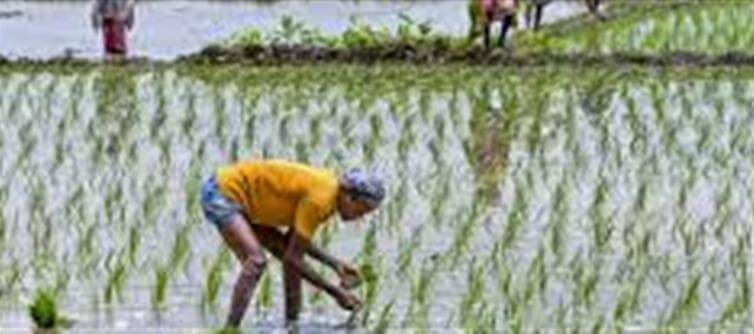
In a significant move to support farmers affected by the devastating floods caused by heavy rains, the Haryana government has announced a series of relief measures. chief minister Manohar Lal Khattar declared that crop loan repayments will be deferred, offering immediate financial relief to farmers struggling to recover from the damage caused by the floods.
Here’s a breakdown of the key developments:
1. Deferment of Crop Loan Repayments
Farmers who have been impacted by the recent flooding and heavy rainfall in the state will benefit from the deferred crop loan repayments. This measure is aimed at providing immediate relief to farmers whose crops have been destroyed or severely damaged by the floods.
· Extended Repayment Deadline: The government has extended the repayment deadline for crop loans, ensuring that farmers are not burdened with loan repayments while they work to restore their livelihoods.
· Grace Period Until december 2025: The deferment will provide farmers with a grace period until December 2025 to settle their outstanding crop loans without facing any penalties or immediate consequences.
This move is expected to offer significant relief, allowing farmers more time to recover and rebuild their agricultural operations.
2. electricity Bill Relief for Farmers with Tubewell Connections
In addition to the loan repayment deferment, the government has also announced a deferment of electricity bill payments for farmers who use tubewell connections for irrigation. These tubewell users, who depend on consistent water supply for their crops, have faced challenges due to damaged infrastructure and crop losses.
· Deferring Tubewell Bills: Farmers with tubewell connections will not have to pay their electricity bills until December 2025. This will ease the financial pressure on farmers already reeling from crop loss and ensure they are not penalized for delayed payments during this period.
· Impact on Irrigation and Agriculture: The deferment of electricity bills will also help reduce the burden on farmers, allowing them to focus on restoring their farms without worrying about immediate utility expenses.
3. Chief Minister’s Address: A Commitment to Farmers' Welfare
In his address, Chief minister Manohar Lal Khattar emphasized the state's commitment to the welfare of farmers, particularly those hit by natural calamities like floods. He assured the farmers that the state government is fully committed to providing relief and support during this challenging period.
· Focus on Agricultural Recovery: Khattar highlighted the government's ongoing efforts to repair damaged irrigation systems, restore agricultural infrastructure, and provide other forms of assistance to farmers to help them get back on their feet.
4. Comprehensive Support to Flood-Hit Farmers
The haryana government is also working on additional initiatives to aid the recovery process for farmers affected by the floods, which include:
· Disaster Relief Packages: Farmers are expected to receive disaster relief assistance from the government to compensate for the loss of crops.
· Free Seeds and Fertilizers: The state has announced plans to provide free seeds and fertilizers to help farmers replant their crops and restore their agricultural activities.
· Insurance Claims: Efforts are underway to ensure that farmers who have crop insurance can access their claims quickly and efficiently to alleviate their financial hardships.
5. Long-Term Measures for Flood Management
While the immediate focus is on providing relief to flood-hit farmers, the haryana government is also planning long-term strategies to prevent future floods and reduce the impact on agriculture. These measures include:
· Strengthening Drainage Systems: The state is looking at improving drainage and flood control systems to ensure better management of water during the monsoon season.
· Improved Infrastructure: There will be investments in building better irrigation networks and flood barriers to protect vulnerable agricultural areas from future flooding.
6. The Road Ahead: Supporting the Agricultural Community
Haryana’s decision to defer crop loan repayments and electricity bills for farmers reflects a proactive approach to alleviating the economic burden caused by floods. The ongoing support through disaster relief packages, free seeds, and fertilizer distribution will help farmers recover quickly.
This move sets a strong precedent for state governments to adopt timely measures to support farmers in times of crisis, especially in regions prone to seasonal natural disasters.
Conclusion: A Ray of Hope for Haryana’s Farmers
The deferment of crop loan repayments and electricity bills for tubewell users will undoubtedly provide much-needed financial relief to Haryana’s flood-affected farmers. These steps, combined with other disaster recovery initiatives, demonstrate the state’s dedication to the welfare of its agricultural community. As the state works on rebuilding its flood-affected areas, these measures will help restore farmers’ confidence and ensure that agriculture remains a cornerstone of Haryana's economy.
Disclaimer:
The views and opinions expressed in this article are those of the author and do not necessarily reflect the official policy or position of any agency, organization, employer, or company. All information provided is for general informational purposes only. While every effort has been made to ensure accuracy, we make no representations or warranties of any kind, express or implied, about the completeness, reliability, or suitability of the information contained herein. Readers are advised to verify facts and seek professional advice where necessary. Any reliance placed on such information is strictly at the reader’s own risk.
.jpg)




 click and follow Indiaherald WhatsApp channel
click and follow Indiaherald WhatsApp channel